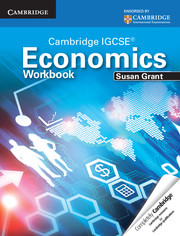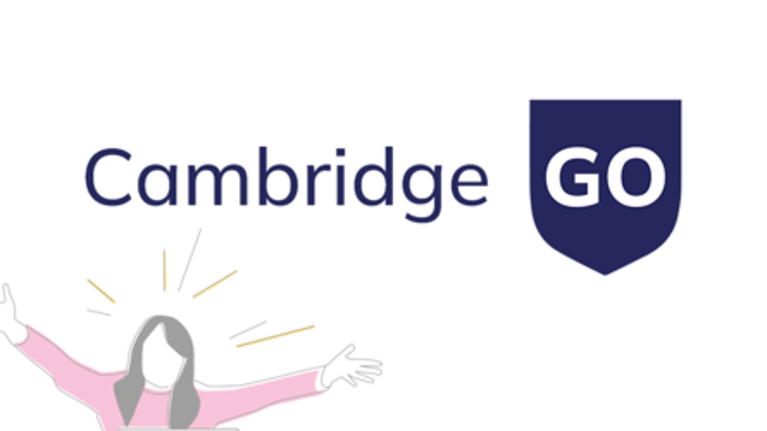Cambridge IGCSE Economics Student's Book
Overview
Endorsed by Cambridge International Examinations, Cambridge IGCSE Economics covers the Cambridge syllabus (0455). The book draws extensively on real world examples to explore economic concepts, theories and issues. Each of the 52 units deals with a specific topic in a lucid and pertinent manner. A number of activities, based on examples from around the world, are designed to facilitate students’ easy understanding of the contents. There is a range of questions both at the end of units and at the end of each of the eight sections to assess students’ progress in the subject.
Features
- Endorsed by Cambridge International Examinations, Cambridge IGCSE Economics covers the Cambridge syllabus (0455).
- A range of questions both at the end of units and at the end of each of the eight sections to assess students’ progress in the subject and to help them prepare for the examination.
- Attractive book design and layout with interesting icons.
- A clear indication of the content at the beginning of each unit.
- Stimulating in-text activities.
- Definitions of important terms given as highlighted key point boxes.
- Numerous well-labelled diagrams and photographs to serve as visual aids.
Contents
- Introduction
- Preparing for the examination
- Section 1. The Basic Economic Problem: Unit 1. Scarcity
- Unit 2. Factors of Production
- Unit 3. Opportunity Cost
- Answer key
- Examination practice
- Section 2. Allocation of Resources: Unit 4. Market and Mixed Economies
- Unit 5. Equilibrium Price
- Unit 6. Changes in Demand
- Unit 7. Changes in Supply
- Unit 8. Price Elasticity of Demand
- Unit 9. Price Elasticity of Supply
- Unit 10. Merits of the Market System
- Unit 11. Market Failure
- Unit 12. Use of Resources
- Unit 13. Public Expenditure versus Private Expenditure
- Answer key
- Examination practice
- Section 3. The Individual as Producer, Consumer and Borrower: Unit 14. Specialisation, Exchange and Money
- Unit 15. Banks
- Unit 16. Stock Exchanges
- Unit 17. Choice of Occupation
- Unit 18. Differences in Earnings
- Unit 19. Changes in Earnings
- Unit 20. Trade Unions
- Unit 21. Motives for Spending, Saving and Borrowing
- Unit 22. Differences in Expenditure Patterns
- Answer key
- Examination practice
- Section 4. The Private Firm as Producer and Employer: Unit 23. Types of Business Organisations
- Unit 24. Demand for Factors of Production
- Unit 25. Costs of Production
- Unit 26. Principle of Profit Maximisation
- Unit 27. Pricing and Output Strategies
- Unit 28. Different Size of Firms and Integration
- Unit 29. Economies of Scale
- Answer key
- Examination practice
- Section 5. Role of Government in an Economy: Unit 30. The Government as a Producer and an Employer
- Unit 31. Aims of Government
- Unit 32. The Government's Influence on Private Producers
- Unit 33. Conflicts between Government Aims
- Unit 34. Types of Taxation
- Unit 35. Incidence and Impact of Taxation
- Answer key
- Examination practice
- Section 6. Economic Indicators: Unit 36. Consumer Prices Index
- Unit 37. Causes and Consequences of Inflation and Deflation
- Unit 38. Employment
- Unit 39. Causes and Consequences of Unemployment
- Unit 40. Gross Domestic Product and Economic Growth
- Unit 41. Living Standards
- Answer key
- Examination practice
- Section 7. Developed and Developing Countries
- Unit 42. Different Stages of Development
- Unit 43. Inequality and Poverty
- Unit 44. Population Growth
- Unit 45. The Effects of Changes in Population
- Unit 46. Problems of Development
- Answer key
- Examination practice
- Section 8. International Aspects: Unit 47. The Structure of the Balance of Payments
- Unit 48. Changing Patterns of Exports and Imports
- Unit 49. International Trade
- Unit 50. Exchange Rates
- Unit 51. Changes in Exchange Rates
- Unit 52. Free Trade and Protection
- Answer key
- Examination practice
- Answers to examination practice questions
- Additional structured questions
- Useful resources
- Index.
Brighter Thinking Blog
Keep up to date with the latest classroom tips and educational trends from our brighter thinkers.
Visit the blogCatalogues and Ordering
Looking for something in particular or just browsing? View our catalogues to see our full range of print and digital books.
View and downloadAdvice on useful tools
Advice on useful tools, activities and timetabling from teachers experiencing school closures.
Cambridge GO
All our supporting resources have now moved to Cambridge GO – the new home for your Cambridge digital content.
Listen to our podcast
Listen to our podcast to discover teaching inspiration & advice from leading educational thinkers.





